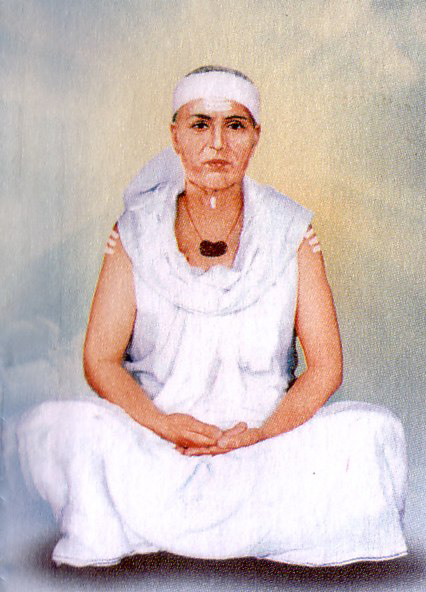Devnagari: योगमाया
Pronunciation: yog-maa-yaa

Early Life
Yogmaya Neupane was born in 1867 in Majhuwabesi, Bhojpur, Nepal, into a Brahmin family. As the eldest child and only daughter, she faced the traditional pressures of her society early on, being married at the age of seven to Manorath Koirala. Her marriage was marked by hardship and domestic violence, leading her to flee back to her parental home. Despite initial resistance from her family, she eventually found refuge there.
Life in Assam and Personal Struggles
In her mid-teens, Yogmaya developed a relationship with a neighbor and eventually married him, moving to Assam. This relationship ended over a decade later, and she had one recorded daughter, Nainakala Neupane. After this, she sought a life of renunciation, leading her to return to her birthplace.
Renunciation and Activism
Upon returning to Nepal, Yogmaya adopted an ascetic lifestyle, which was uncommon for women at the time. She began composing poetry that voiced her spiritual insights and critiques of societal injustices. Influenced by reformist leaders like Dayananda Saraswati, her poems reflected the cultural and political oppression of her era, focusing on women’s rights and the plight of marginalized groups.
Yogmaya founded the Nari Samiti in 1918, the first women’s organization in Nepal, which played a pivotal role in advocating for women’s rights, including the abolition of the practice of sati in 1920.
Growing Popularity and Government Opposition
As her following grew, so did the opposition from local feudal lords and the Rana regime. Yogmaya’s candid critiques of the corrupt government led to increased scrutiny and persecution. Despite the risks, she remained committed to her cause, mobilizing support and spreading awareness through her poetry.
Mass Suicide (Jal Samadhi)
In 1941, facing relentless oppression and in a bid to protest against the Rana regime, Yogmaya and 67 of her disciples committed mass suicide by jumping into the Arun River in a ritual known as Jal Samadhi. This act of defiance was a culmination of her lifelong struggle against injustice and has become a significant event in Nepali history.
Legacy
Yogmaya’s influence persisted long after her death on July 5, 1941. Despite censorship during the Rana regime and subsequent political eras, her teachings and poetry continued to inspire many. In 2016, the Nepal Government issued a postage stamp in her honor, recognizing her contributions to women’s rights and literature.
Her life and work have been explored in various academic disciplines and artistic expressions, including a biographical novel that won the Madan Puraskar in 2018. Local organizations have also been established to promote her legacy and preserve sites significant to her life.
Conclusion
Yogmaya Neupane stands as a pioneering figure in Nepali literature and women’s rights activism. Her courage in the face of adversity and her commitment to social justice continue to resonate in contemporary discussions about gender equality and human rights in Nepal. Through her poetry and activism, she has left an indelible mark on the history of Nepal, inspiring generations to advocate for change.
ROOM DETAILS
This is one of our treatment rooms Room 001 Yogmāyā. Have a wonderful time at Jungle Mahal!
